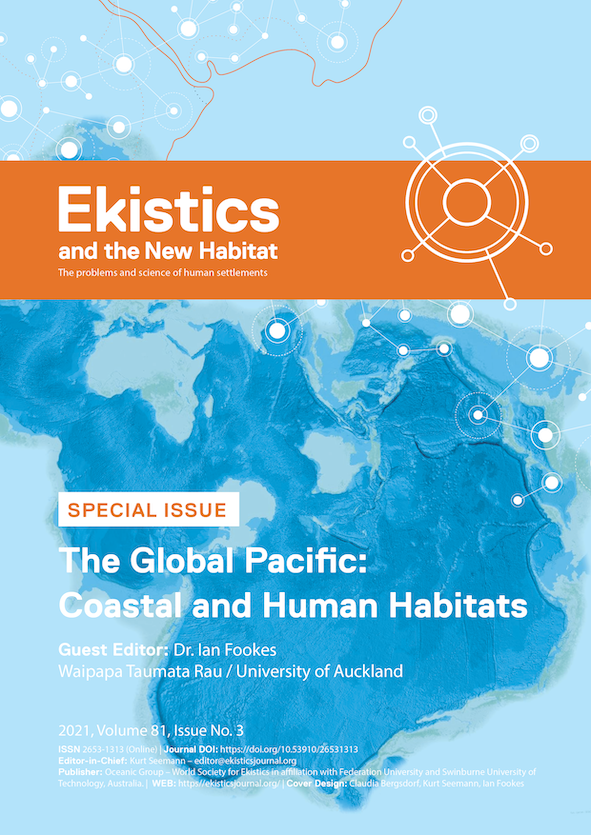Spacing Decoloniality: De-figuring the Coloniality of Space and Subjectivity in the Caribbean and Oceania
DOI:
https://doi.org/10.53910/26531313-E2021813628Keywords:
Decolonisation Pacific StudiesAbstract
When juxtaposed with more classical Benjaminian concepts, such as aura and the role of storytelling in industrial modernity, the archipelagic vision, which is preeminently spatial and therefore impinges directly on the interface between objective and subjective concerns of ekistics, is emblematic of the political role that art and literature play in refiguring the coloniality of space in the Caribbean and Oceania. The argumentative crux of this article hinges on the premise that, considered as the specifically spatial expression of the cosmological sphere of experience whose generic name is Glissant’s Relation, and taken within the specific historical context of imperial cartographic practices in both regions, the archipelagic is a useful guiding principle that could inform decolonial ekistics policymaking. With that purpose, the author discusses the work of several artists and writers from the Caribbean and Oceania, in order to illustrate how an archipelagic understanding of space and subjectivity inform their practices. By examining the work of Ibrahim Miranda, John Puhiatau Pule, Epeli Hau’ofa and Eduardo Lalo the essay shows that their work constitutes a reactivation, at the transnational level, of the classical modernist motif of re-forming what Walter Benjamin called the human sensorium. Moreover, it is argued that these artists do so in order to challenge and undo the cartographic paradigms that were imposed in the region by successive Western empires. Such acts of cartographical undoing and reformulation under an archipelagic paradigm are important to force Caribbean and Oceanian subjectivities to dissolve the weight of colonial history, as it overdetermines their relationship with their space.
Downloads
Published
How to Cite
Issue
Section
Categories
License
Copyright (c) 2022 Ekistics and The New Habitat

This work is licensed under a Creative Commons Attribution-NonCommercial-NoDerivatives 4.0 International License.
Please contact the Editor-in-Chief: editor@ekisticsjournal.org, should you have any questions on copyright for your submission.
This research journal is for Educational and Knowledge development purposes.
All material published on this site complies with our copyright and terms as described by the Attribution-NonCommercial-NoDerivaties 4.0 International (CC BY-NC-ND 4.0)






